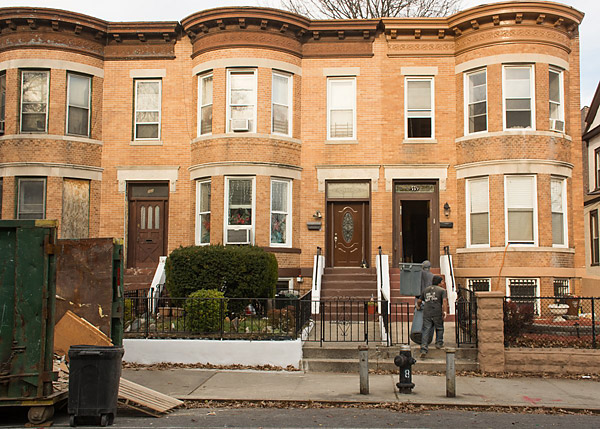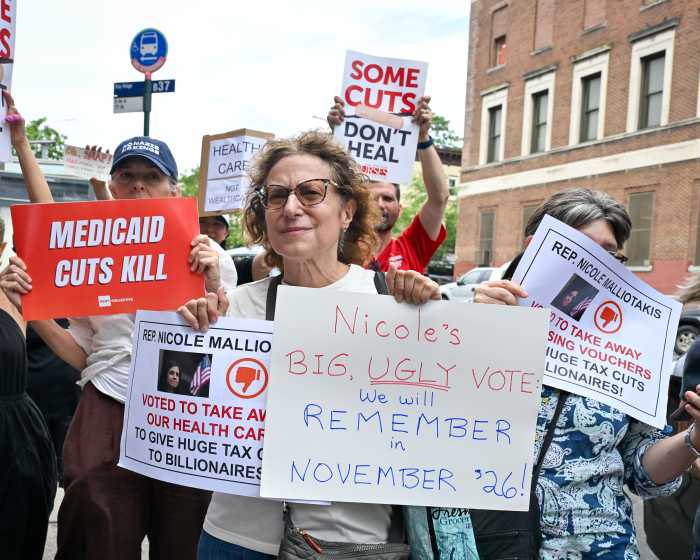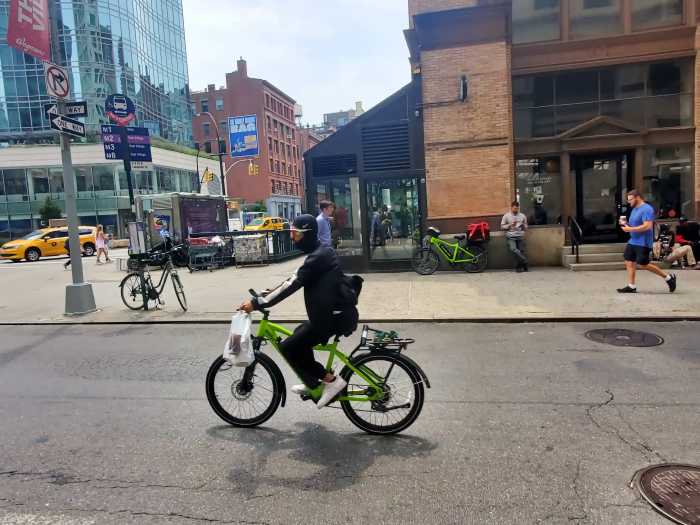Vigilant Ridgites must watch what they say when reporting illegal home conversions.
Watchdogs blew the whistle on contractors gutting the inside of a home between Third and Fourth avenues without a permit on Dec. 11, but the city didn’t get around to issuing a stop-work order for a week, because complainants told 311 the work was “illegal construction” rather than “illegal demolition.” The difference in one word increases the city’s target response time from 1.5 days to 45 days, and whistle-blowers need to know how to parlay the city’s lingo in order to protect their own neighborhoods, a local leader said.
“We try to get people to understand the language and use certain language to get the complaint [a higher priority],” said Bob Cassara, founder of the Brooklyn Housing Preservation Alliance.
Contractors hauled enough debris from the building to fill a dumpster, photos taken on Dec. 11 show. But whistle-blowers told 311 on Dec. 11 and Dec. 14 that the dicey demolition men were doing construction rather than destruction, and the city considered it a lesser threat, according to city records.
The Department of Buildings prioritizes complaints by rating them “A” through “D,” with “A” priority being the most immediate, according to agency materials. “Illegal demolition” gets the highest priority, but “illegal construction” gets a “B” designation.
On average, it takes the Department of Buildings 38 days to close out a “B”-level complaint, but inspectors are working as fast as they can, an agency spokesman said.
Inspectors must witness illegal work themselves, and the property owner must be present for the city to issue papers if the work is already complete, he said. Gaining admittance to inspect work sites is also a hurdle, he said.
“It’s not just a matter of slapping a stop-work order on the door, there is a process,” said department spokesman Alex Schnell.
The Department of Buildings sent an inspector to the site Dec. 18 — seven days after the initial complaint and one day after this paper made inquiries with the agency.
Earlier this year, it took inspectors two weeks to slap a stop-work order on a nearby illegal construction job that threatened to collapse on a neighborhood restaurant, city records show.
The damage is often done by the time the city gets around to inspecting, leading to tension with local watchdogs, another community leader said.
“By the time the buildings department responds, the work is over and done with,” said Community Board 10 district manager Josephine Beckmann. “That’s one of the things that really frustrates people, they see something and report it but they don’t see anything happen for weeks.”

























